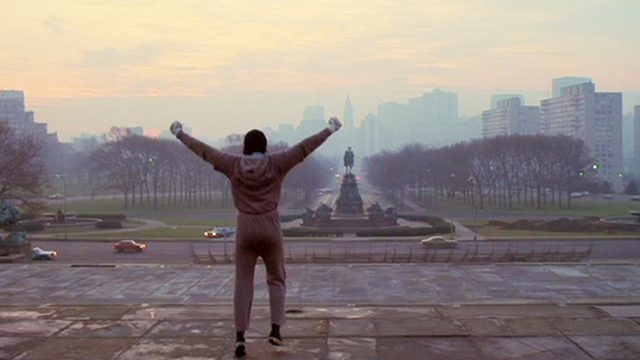While the Academy professes to reward vision, they’re a bit dismissive of personal visions. There are four nominees with a sole credited writer/director this year: Lady Bird; Get Out; Three Billboards Outside Ebbing, Missouri and Dunkirk. Of these, Lady Bird is arguably the most personal, distilling details directly from writer/director Gerwig’s life and experiences. Historically there are exactly three Best Picture winners with sole writer/directors that are not adaptations of previous material: Platoon (Oliver Stone), Titanic (James Cameron) and The Artist (Michel Hazanavicious)*. For various reasons, these movies don’t really converse with Greta Gerwig’s portrayal of a young woman’s year of transition from unsteady high school senior to moderately steady college freshman.
So we expand the field a bit. Annie Hall had only two credited writers and contains the unmistakable DNA of its director and co-writer, a successful fellow by the name of Woody Allen. Lady Bird and Annie Hall will definitely exchange a few laughs at the hypothetical future reunion of Best Picture winners. But ultimately Annie Hall comes from a different place in life. Protagonist Alvy Singer is escaping the relationships and mistakes that Lady Bird is just starting to make.
Maybe our problem is looking only at films from a man’s sensibility. So we try to pair Lady Bird with another Best Picture winner with an original screenplay by a woman only to discover none exists. So never mind.
Terms of Endearment comes from writer/director James L. Brooks, adapted from the novel by Larry McMurtry. At the reunion, Lady Bird and Terms will exchange jokes that cut deeper. There’s a lot of shared material, such as a thorny mother-daughter relationship that is both torn apart and strengthened with moves across the country. This is the logical choice for a pairing. But it doesn’t quite harmonize the way another option does.
Lady Bird is a love letter to a city that isn’t LA, New York, or even somewhere in Britain. Lady Bird examines the day-by-day process of stumbling toward a goal few give you a chance at achieving. Lady Bird realizes some of the people who are toughest on you are the ones who have been on your journey before. And so Lady Bird makes a connection with a scrappy dreamer of a different ilk: 1978 winner Rocky.
Lady Bird’s progenitor Gerwig is far more established in the industry than Rocky writer/star Sylvestor Stallone was in the mid-70s. This is her second screenplay nomination, for one thing, and I would put her roles in movies like 20th Century Women a notch in prestige above Sly’s appearance in Death Race 2000. But a winning Lady Bird still would have the quality of an exclamation mark on an announcement. Of an underdog effort going toe-to-toe with the favorite and coming out on top. Although maybe, like Mr. Balboa, Lady Bird doesn’t need to get that last winning vote to achieve a victory.
Winning Best Picture means a film’s story becomes more than its textual story. A winner becomes part of a narrative about how movies get made and how they get noticed. And ultimately it’s described in relation to what comes next.
Lady Bird has “Gonna Fly Now” on CD and she plays it loud and without irony.
*A couple near-misses: All About Eve (Joseph L. Mankiewicz) is based on a short story that did not receive credit and Moonlight (Barry Jenkins) is based on unpublished material.

